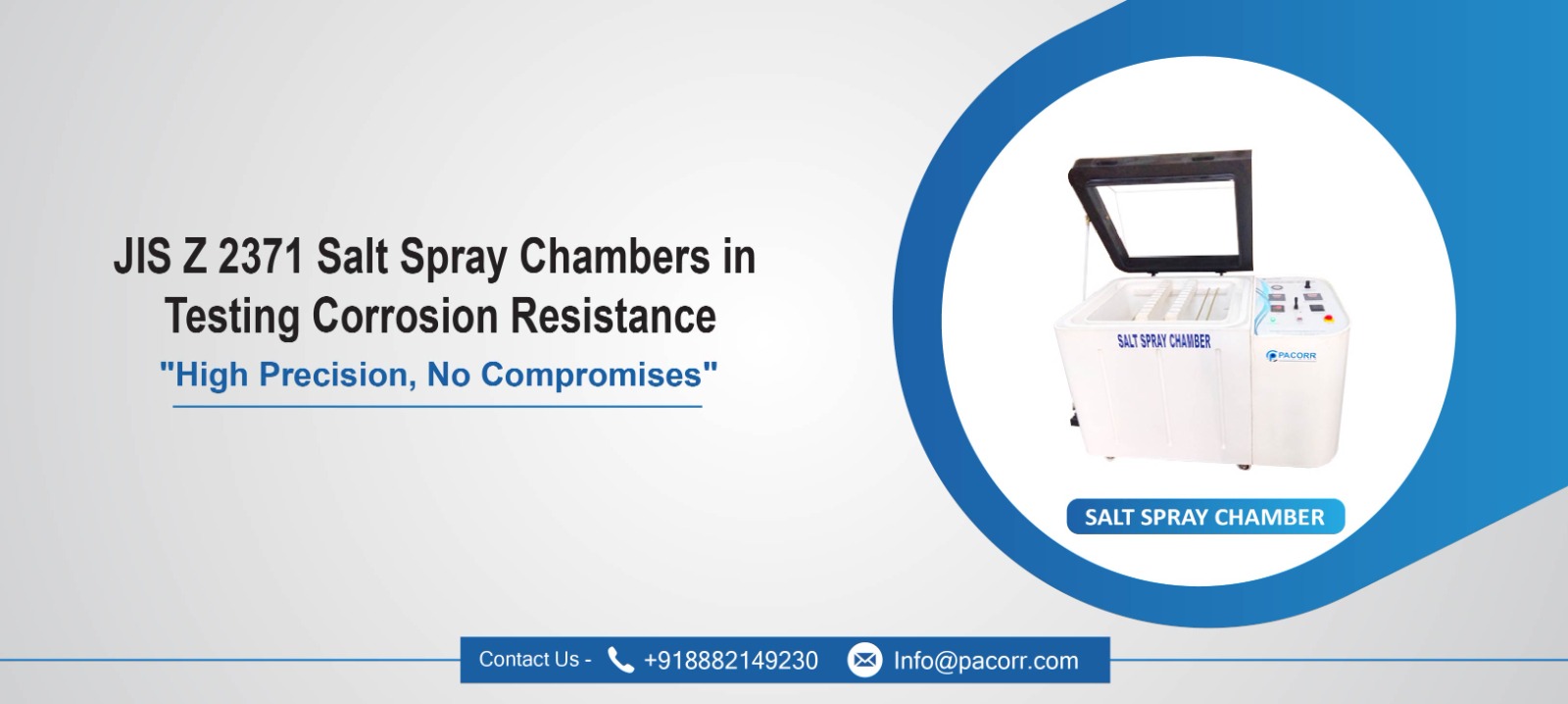
 Testing the durability and corrosion resistance of various materials is crucial to materials science and quality control. Among the many methods available, salt spray testing stands out as a reliable technique for evaluating the corrosion resistance of metals and coatings. The JIS Z 2371 standard plays a pivotal role in defining the procedures and specifications for these salt spray chambers, ensuring uniformity and accuracy in corrosion testing.
Testing the durability and corrosion resistance of various materials is crucial to materials science and quality control. Among the many methods available, salt spray testing stands out as a reliable technique for evaluating the corrosion resistance of metals and coatings. The JIS Z 2371 standard plays a pivotal role in defining the procedures and specifications for these salt spray chambers, ensuring uniformity and accuracy in corrosion testing.
Importance of International Standards
International standards, such as JIS (Japanese Industrial Standards), are crucial in maintaining consistency and reliability across industries worldwide. They establish a common ground for manufacturers, researchers, and regulators, facilitating smoother trade, better product quality, and enhanced consumer safety.
JIS Z 2371 Standard
The JIS Z 2371 standard outlines the specifics for salt spray testing chambers used to simulate and evaluate the corrosive effects of salt-laden environments on materials. It meticulously delineates the apparatus, testing conditions, sample preparation, and evaluation methods, ensuring a standardized approach to corrosion testing.
Key Components and Parameters in JIS Z 2371 Standard
- Apparatus Design: The standard details the construction and features of the salt spray chamber, ensuring uniformity in design to maintain consistent test conditions across different testing facilities.
- Testing Conditions: It specifies the concentration of the salt solution, the temperature of the chamber, duration of exposure, and other environmental parameters critical for accurate testing.
- Sample Preparation: The standard provides guidelines for sample preparation, including surface preparation, coating application, and specimen mounting, ensuring repeatability and reproducibility in test results.
- Evaluation Methods: It defines the criteria for assessing the extent of corrosion on test samples, such as rust formation, blistering, or changes in appearance, enabling consistent evaluation across different laboratories.
Significance of JIS Z 2371 Standard-Based Salt Spray Chambers
Reliable Assessment: Adhering to the JIS Z 2371 standard ensures that corrosion testing is conducted under controlled and reproducible conditions, allowing for reliable assessment of materials' resistance to corrosion.
Quality Assurance: Manufacturers rely on these standardized tests to validate the quality and durability of their products. Compliance with such standards ensures that products meet industry benchmarks for corrosion resistance, enhancing their reliability and lifespan.
Global Acceptance: International standards like JIS Z 2371 facilitate global acceptance and trade of materials and products by providing a universally recognized framework for evaluating corrosion resistance.
Advancements in Research and Development: Researchers and innovators utilize these standards to develop new materials and coatings with improved corrosion resistance, contributing to technological advancements across industries.
In essence, the JIS Z 2371 standard-based salt spray chambers serve as indispensable tools in the evaluation of materials' resistance to corrosion. By adhering to international standards like JIS Z 2371, industries uphold quality, reliability, and innovation, ultimately benefiting both manufacturers and consumers alike. These standards not only ensure consistency but also foster advancements in materials science, paving the way for more robust and durable products in various applications. This is especially beneficial for the automotive and marine industries, where corrosion-resistant materials are essential for optimal performance and safety. Additionally, these standards also help to reduce environmental impact, as corrosion-resistant products require less energy and resources to maintain.
What People Say
Thanks to Pacorr Testing instruments, we have all the required quality testing instruments that have helped us to ensure the best quality delivered to our clients.

Danish
Fair Exports Pvt. Ltd.

